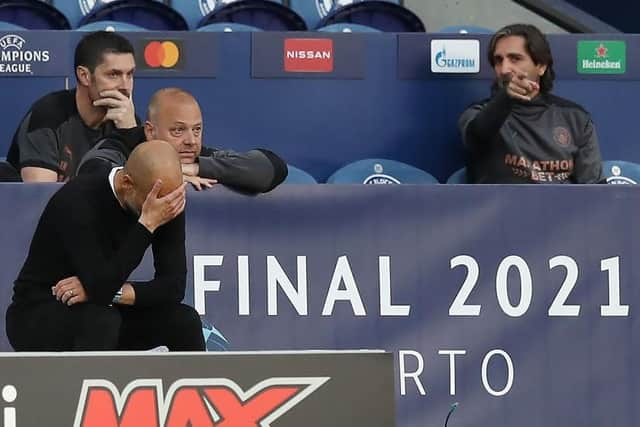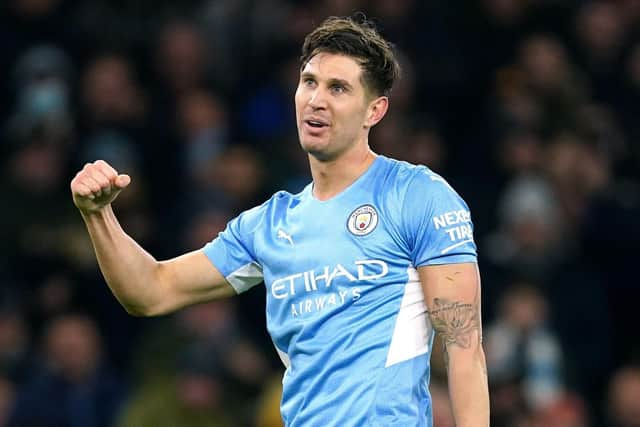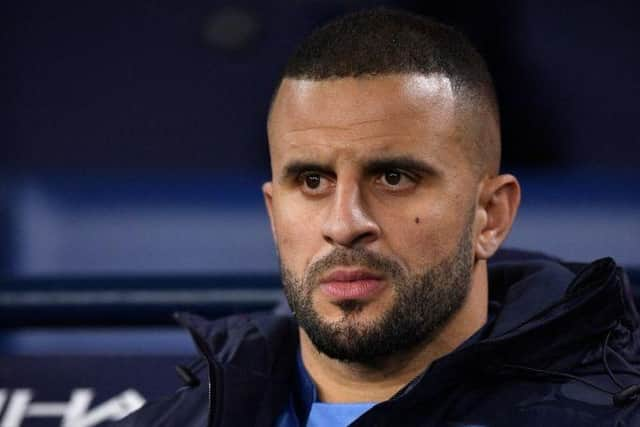Manchester City v Inter Milan: Pep Guardiola must keep 'over-thinkerman' away and stick to plan revolving around Yorkshire duo
It is why an all-time managerial great has not added to the two European Cups his era-defining Barcelona won more than a decade ago.
It is the caveat which stops Manchester City being talked of in the same breath as Sir Alex Ferguson's Manchester United or Bob Paisley's Liverpool. For now.
Advertisement
Hide AdAdvertisement
Hide AdOn Saturday in Istanbul, City have a very good chance of laying that ghost to rest by completing only the second treble of FA Cup, league and European Cup in English history. If they do, Yorkshiremen John Stones and Kyle Walker will provide the brains behind it.
Inter Milan have previous, having beaten Bayern Munich after first doing a number on Guardiola's Barcelona to lift ‘Old Big Ears’ in 2010.
But Manchester United had treble-ruining pedigree from 1977, and it did not help them much at Wembley last week. And Inter coach Simone Inzaghi might be a cup expert but not Jose Mourinho in his prime.
More importantly, Guardiola has shown signs recently of having learnt from his past. We will only know for sure when the teams are announced at around 7pm, but it looks like the tinkerman, the over-thinkerman might have been put to rest, or at least into hibernation. The confidence from reeling in Arsenal in the Premier League and knocking out Bayern and Real Madrid en route to this final should surely help.
Advertisement
Hide AdAdvertisement
Hide AdIf Guardiola picks Ederson, Walker, Dias, Akanji, Stones, Rodri, Silva, de Bruyne, Gundogan, Grealish and Haaland, all will be well. Nine started all six recent games against Bayern, Real, Arsenal and United.


If Nathan Ake comes in at outside centre-back, if Phil Foden or Riyad Mahrez are on the wing, or Julian Alvarez in central midfield we can expect broadly the same approach that got City from juddering slightly into the juggernaut they got back to in early February. Tweaks and changes of emphasis are needed, radical rethinks are not.
This is where Guardiola has tripped up before.
Football might be, as Billy Shankly put it, "a simple game, complicated by idiots,” but a genius like Guardiola has fallen into the same trap, firstly when he was at Bayern Munich.
It happened in 2014, when he switched unexpectedly to a 4-2-4 formation to overturn a 1-0 semi-final first-leg deficit at home to Real Madrid and lost 4-0. "A complete ****-up" in Guardiola's words.


Advertisement
Hide AdAdvertisement
Hide AdThe next year he tried a back three, only to rejig 16 minutes in and lose 3-0 in Barcelona.
It happened for a third semi-final running when top-scorer Thomas Muller was dropped for a 1-0 defeat at Atletico Madrid in 2016. In 2017 with Manchester City, Yaya Toure was the talisman dropped as Monaco got the 3-0 win needed to progress to the last eight.
"Toure has been at the heart of everything City have done well since November," wrote Jack Pitt-Brooke in The Independent. "He watched from the bench as Fernandinho was back in the team and powerless to stop Monaco’s attacks."
In the 2018 quarter-finals, choosing Ilkay Gundogan over Raheem Sterling on the right wing backfired as Liverpool won 3-0 with Mohammed Salah having a field day against Aymeric Laporte, left-back for only the second time that season.


Advertisement
Hide AdAdvertisement
Hide AdThe 2015 brainwave was repeated in 2020, when City lost a one-off quarter-final 3-1 to Lyon playing three at the back. "The Catalan must take his full share of responsibility," wrote the BBC's Phil McNulty.
And it happened in the 2021 final, when for only the second time that season, Guardiola played without Fernandinho or Rodri, his holding midfielders, and lost to Chelsea.
Those misjudgements have become a narrative of his otherwise brilliant post-Barcelona years.
But after a ticklish start to the season, Guardiola has hit on a formula for Haaland's City which Stones and Walker now drive.
Advertisement
Hide AdAdvertisement
Hide AdA goal-hungry striker who does not waste many touches on anything but shots changed the City dynamic, taking a player out of Guardiola’s key battleground: midfield.
The first solution was the one he used with Philipp Lahm at Bayern and Joao Cancelo at City before they fell out – the "inverted full-back" going from the outside of defence into midfield. After a few auditions, Barnsley-born Stones got a job requiring brains as much as versatility and passing ability. The Oakwell education outlined here has been essential.
Walker was ignored, unable to play that way according to his coach. But he is too good to leave out for long so once Guardiola needed the Sheffielder's pace, he used his intelligence and ability to switch from right-back to centre-back and Stones instead stepped forward from the middle of defence.
When Ronald Koeman popped up alongside Guardiola for Barcelona, or Matthias Sammer or Franz Beckanbauer joined Germany's midfield we called them "sweepers" because or their defensive job behind the centre-backs. We could do with a name for Stones's position.
Advertisement
Hide AdAdvertisement
Hide AdWhatever you call it, it allows a four-man "three-quarter line" (I am coining that one) between holding midfield and centre-forward in which City can dominate the ball.
It is unusual (for now) but works beautifully and brilliantly for City. So why do anything else?
So long as City do not, it is hard not to see a new English winner of European football's biggest prize.